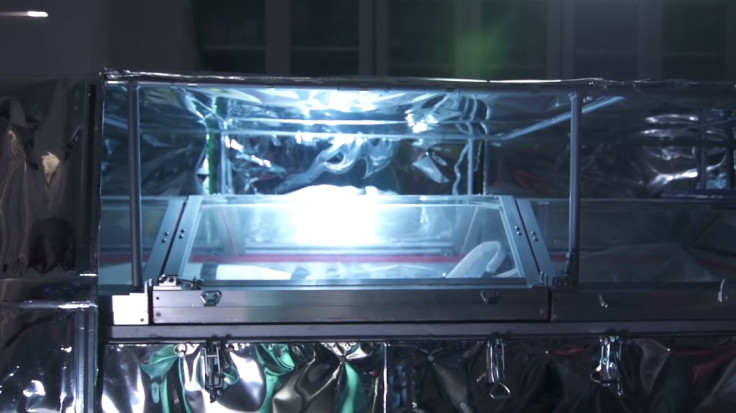Two-year-old becomes youngest person to be cryogenically frozen

A two-year-old from Thailand has become the youngest person to be cryogenically preserved after her parents made the decision to freeze her brain immediately after her death. Matheryn Naovaratpong, or Einz, suffered from a rare form of brain cancer that proved fatal just before her third birthday earlier this year.
Einz's parents, who are both medical engineers, decided to commission the "life extension" services of US-based Alcor Life Extension Foundation. Moments after her death in a Bangkok hospital, a team from Alcor began the process of "cryoprotection" that preserved her brain at sub-zero temperatures without large-scale tissue damage.
"The first day Einz was sick, this idea came to my mind right away that we should do something scientifically for her, as much as is humanly possible at present," Einz's father Sahatorn told the BBC. "I felt a real conflict in my heart about this idea, but I also needed to hold on to it. So I explained my idea to my family."
How cryogenic freezing works
- Moments after a patient is declared legally dead, the body is put on artificial life support.
- Bodily fluids are replaced with antifreeze that allow the body to be frozen without large-scale tissue damage.
- The body is cooled to around -200C to be stored indefinitely in liquid nitrogen.
It is hoped that if a cure for Einz's form of brain cancer is found in the future, scientists will be able to reanimate the brain and allow her to grow-up into adulthood. She was Alcor's 134th patient, though no previous patients have yet been revived. The non-profit firm offers a variety of services – ranging from full-body freezing to brain freezing – and Einz's parents hope that future technological advances will allow for a new body to be created for her frozen brain.
"As scientists we are 100% confident this will happen one day - we just don't know when," Sahatorn said. "In the past we might have thought it would take 400 to 500 years, but right now we can imagine it might be possible in just 30 years."
© Copyright IBTimes 2025. All rights reserved.






















